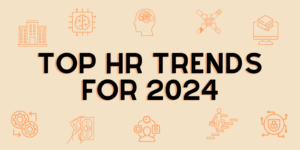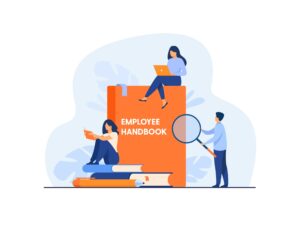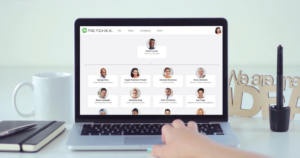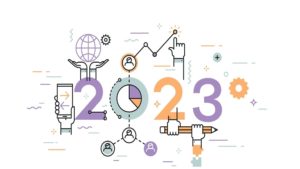10 Substantial Ways to Empower Women in the Workplace
Today’s offices look very different from the ad agency in Mad Men—and that’s a good thing, in more ways than one. From the #MeToo movement to fights over the office thermostat, we still have much room for progress. While keeping track of benefits and pain points for women in the workplace, let’s continue to develop […]
Read ArticleAI, Upskilling, and Return to Office: Top 10 HR Trends for 2024
Despite rapid innovation and new capabilities, the function and fundamentals of Human Resources tasks remain largely the same. Year to year, however, HR professionals must keep up with emerging HR trends for 2024. Like last year, artificial intelligence and DEI will continue to make headlines in 2024, and. The past few years have taught us […]
Read ArticleScaling Up: Using Org Charts to Guide Business Growth
As your company grows, an organizational chart (aka org chart) becomes more and more critical. Loose structures help startups adapt and change, but growing companies suffer when employee roles and hierarchies are ambiguous or undefined. An org chart allows your business to stay organized and agile for change and growth. Discover how org charts should […]
Read ArticleNever Too Late to Update: Critical 2023 Employee Handbook Updates
Even without big changes in your workplace, your employee handbook likely needs an update every year, including 2023. Employee handbook updates are becoming increasingly important, as we’ve previously talked about how, when, and why to update. Reviewing your handbook quarterly is best, but you’ll definitely need to check for outdated policies at least once a […]
Read ArticleHR Tips for Managing a Multigenerational Workforce
While startups might employ workers from the same graduating class, mature businesses typically have a mix of older and younger workers. A multigenerational workforce is bound to have its fair share of ups and downs. Different generations bring their own attitudes to the workplace, shaped by personal experience as well as cultural landmarks from different […]
Read ArticleThe Importance of Building a Better HR and CEO Relationship
HR’s relationship with the CEO is more important than ever. Top executives have to think about the big picture. In doing that, it’s hard to consider all the ways decisions might impact staff. HR often serves as a liaison between the C-suite and the rest of the workforce, helping to keep everyone pointed in the […]
Read ArticleHow to Celebrate Pride Month Authentically in the Workplace
In the past few years, companies have become increasingly vocal in their support of social causes, organizations, and celebrations. One of the most prevalent and recognizable is Pride Month. Like any diversity and inclusion effort from businesses, the support is welcome as long as it is authentic and not self-serving. How many companies actively support LGBTQ+ […]
Read ArticlePreparing Your Business for Hurricane Season and Other Natural Disasters
Hurricane season is upon us once again (June 1 – November 30). Tropical storms and hurricanes affect most of the coastal parts of the United States. Is your business ready? Even when there’s no damage to your property, big storms can disrupt the local economy for days or weeks at a time. Road closures, power […]
Read ArticleHow to Promote and Measure DEI Initiatives Year-Round
Diversity, Equity, and Inclusion (DEI) initiatives have been popular in response to social justice issues in America. For a real impact, DEI must go further than a politically correct press release or a single round of diversity hires. Your company will need a year-round commitment to succeed with DEI, but the changes can pay dividends […]
Read ArticleOrganizational Charts: Why Every Company Needs One
Efficient companies need to be well organized and dedicated to planning ahead. An organizational chart, or org chart, can go a long way in accomplishing this. An org chart allows you to visualize the hierarchy and connections within your workforce. Developing an org chart may highlight problems in the organization’s communication and workflow, but not […]
Read ArticleWhat’s Love Got To Do with HR? Tips for Regulating Office Romances
Office romance is a popular trope for steamy romance novels and TV shows, but it can be a real nightmare for HR. Unfortunately, you can’t afford to ignore the problem, either. A recent SHRM survey found that office romance has become more common since the pandemic. If you don’t already have a policy on office […]
Read ArticleRecession, Retention, DEI, and More: Top HR Trends for 2023
The last few years have been times of uncertainty and change—and there seems to be more uncertainty and change ahead for 2023. Even without pandemic shutdowns, near constantly changing circumstances create new challenges for Human Resources departments. Like every year, several HR trends for 2023 have emerged. Here are the top 10 HR trends for […]
Read Article











